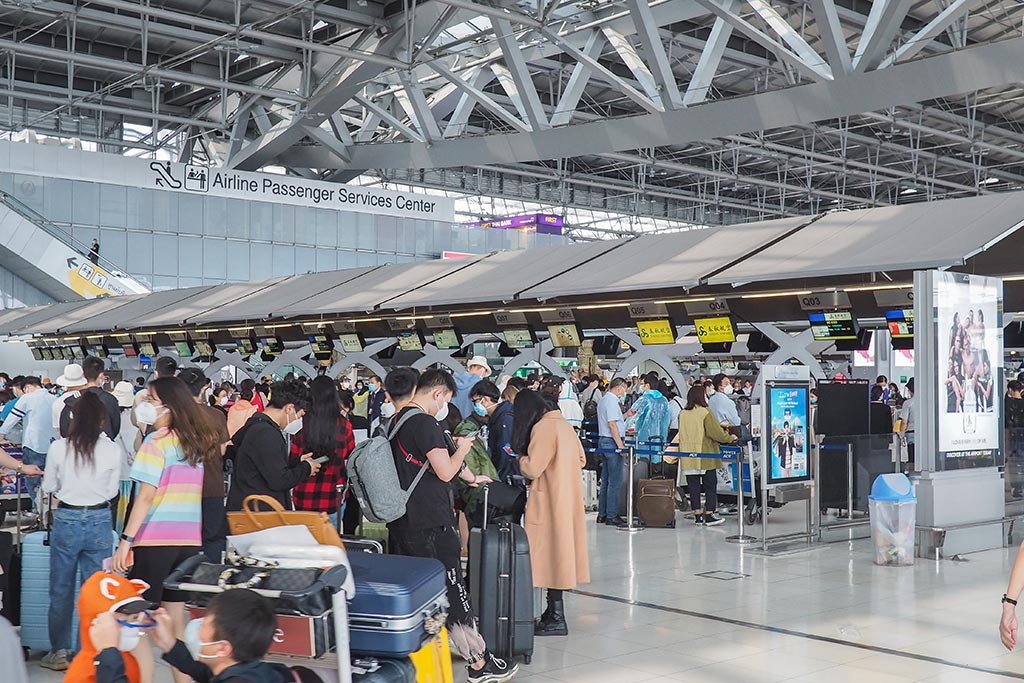New Tourist Tax? Thailand Government Plans Overtourism Solutions

Due to the overwhelming number of tourists returning to Thailand after the pandemic, tourist operators have urged the government to take action against overtourism. One of the primary measures being planned is a new tourist tax on all those entering the country in hopes that it will help combat overtourism by funding government initiatives to increase capacity for visitors.
What is Overtourism?
Overtourism refers to the negative impacts an excessive number of tourists can have on a region and the people who live there. A prime example of this in Thailand is Phuket. The city has been experiencing high traffic congestion and water shortages and has run out of available slots for airlines at its international airport during the high seasons. All of this is only the beginning, as Phuket is considered only on the verge of overtourism and officials fear it will get worse unless a solution is put in place.
Not only are there safety concerns around overtourism, but the phenomenon also hurts the environment. Thailand experienced overtourism before the pandemic and had to close several popular beaches for extended periods to prevent permanent damage to the ecosystems. Conversely, restricting the number of tourists could cause negative experiences for visitors, leading to lower arrivals and generating less revenue for the country and local regions in the long run.
Tourism Tax as a Possible Solution
Thai tourism officials are planning a 300 THB tourist tax, which will help fund infrastructure development in second-tier provinces to attract tourists away from congested locations. The tax would also increase Thailand’s Tourism Department budget, which receives a budget of 700 million THB every year, which they say is not sufficient to sustain necessary development projects.
Adith Chairattananon, Secretary-General of the Federation of Thai Tourism Associations (Fetta), commented that one of the key strategies to tackling overtourism is to draw tourists away from major hubs to Thailand’s secondary cities that offer an abundance of potential attractions and room to accommodate an influx of visitors. New infrastructure will hopefully give popular attractions time to recover from overtourism and introduce tourists to other parts of Thailand that could benefit from increased tourism revenue.
This can further be pushed by giving incentives to airlines that can provide direct flights to provincial airports like U-Tapao in Rayong and those serving Khon Kaen and Krabi. By doing so, congestion among gateways such as the Phuket and Suvarnabhumi airports will be alleviated and regional business opportunities will increase.
Officials Say New Tax is Not a Tourism Deterrent
Of course, there is the fear that this new tax may dissuade tourists from visiting Thailand altogether. However, according to Surawat Akaraworamat, Vice-President of the Tourism Council of Thailand (TCT), the 300 THB tourist tax is a reasonable sum that would not discourage tourists from coming to Thailand. It is comparatively lower than other nations such as Bhutan, which collects over 100 USD in tourist tax per night.
Furthermore, this is not the first time such a tax would be levied on arriving tourists, as before the pandemic a similar tax was collected. Even then, Thailand experienced overtourism, so officials are confident that the new tax will provide more than enough benefits to outweigh the risks.
Category: Administrative Law, Thailand Tax
About the Author (Author Profile)
Matthew is Siam Legal’s Marketing Manager and a veteran writer who also contributes to Thai Embassy’s blog as well as Siam Legal’s other content platforms. He has lived and worked in multiple East Asian countries, and now resides in Thailand where he utilizes his significant writing experience and unique international perspective to create content in multiple formats on a wide range of subjects. In addition to Thai law and immigration, Matthew has experience writing on subjects related to international travel, business technology, marketing, entertainment, history, education, and more.











